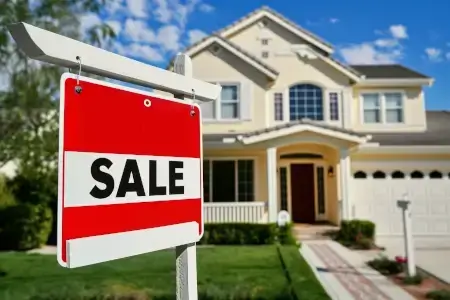Choosing a Home
Once you’ve settled on a couple of neighborhoods for your search, it’s time to pick out a few homes to view. Refer back to your Wish List and see which features are absolute requirements and those amenities you’d like to have if possible. When narrowing down your home search, consider:
Types of homes
Home purchase considerations
Home comparison chart
What to do when you’ve found the right home for you.
Types of Homes

In addition to single family homes (one home per lot), there are other forms of home ownership:
Multi-Family Homes
Some buyers, particularly first-timers, start with multiple family dwellings, so they’ll have rental income to help with their costs. Many mortgage plans, including VA and FHA loans, can be used for buildings with up to four units, if the buyer intends to occupy one of them.
Condominiums
With a condo, you own “from the plaster in” just as you would a single house. You also own a certain percentage of the “common elements”–staircases, sidewalks, roofs and the like. Monthly charges pay your share of taxes and insurance on those elements, as well as repairs and maintenance. A homeowners association administers the development.
Co-ops
In a few cities, cooperative apartments are common. With those, you purchase shares in a corporation that owns the whole building, and you receive a lease to your own apartment. A board of directors supervises management. Monthly charges include your share of an overall mortgage on the building.
Home Purchase Considerations

Most buyers’ first consideration, after neighborhoods are chosen, is the number of bedrooms. As you begin to view homes, keep the following purchase and resale considerations in mind:
Weigh your needs, purchase and maintenance budgets, and personal tastes in deciding whether you want a home that’s a newly constructed home, an older home or a home that requires some work, or a “fixer-upper.”
One-bedroom condos are more difficult to resell than two-bedroom ones
Two-bedroom/one-bath single houses generally have less appeal than three or more bedroom houses to many buyers, and therefore less appreciation potential
Homes with “curb appeal” (a well-maintained, attractive, and charming view-from the street appearance) are the easiest to resell
When re-sale is a possibility, don’t buy the most expensive house on the street, or anything that is unusual or unique
The biggest, most expensive house on the block is not usually considered to be the best investment. The best investment potential is traditionally found in a lesser expensive, more moderately sized home on the street.
Note: While house-hunting, it’s a good idea to make notes about what you see because viewing several houses at a time can be confusing.
What to do when you find the right home
Tip: Act decisively when you find the house that’s clearly right for you. This is particularly important, after a long search or if the house is newly listed and/or under-priced.
Every REALTOR® has stories to tell about a couple who looked far and wide for their dream home, finally found it, and then revealed that “we always promised my Dad we’d sleep on it, so we’ll make an offer tomorrow.” Many times the story has a sad ending–someone else came in that evening with an offer that was accepted.


